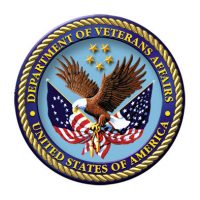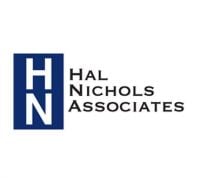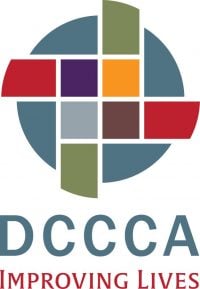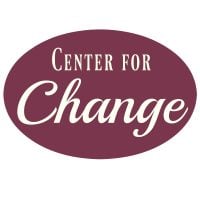Dwight D. Eisenhower VAMC - Wyandotte County CBOC
Drug Rehab Center in Kansas City, Kansas
The Dwight D. Eisenhower VAMC - Wyandotte County CBOC in Kansas City offers a full range of medical services, including mental health and substance abuse treatment, with the aim of providing high-quality, integrated care for veterans.
About Dwight D. Eisenhower VAMC - Wyandotte County CBOC in Kansas
Dwight D. Eisenhower VAMC - Wyandotte County CBOC in Kansas City, Kansas, is a premier VA provider of health care services. The facility has a full range of medical services, including mental health and substance abuse services. This includes both inpatient and outpatient care, allowing veterans to receive the care they need regardless of their needs and schedules. The facility also provides integrated care, which is a holistic approach to treating both physical and mental health conditions.
Dwight D. Eisenhower VAMC - Wyandotte County CBOC offers a variety of services to treat addiction and substance abuse. This includes assessment and diagnostics, group and individual therapy, pharmacotherapy, family therapy, and relapse prevention programs. Additionally, the facility provides treatment for co-occurring disorders, such as depression and anxiety, as well as court-mandated rehabilitation in some cases.
Dwight D. Eisenhower VAMC - Wyandotte County CBOC is an accredited facility, able to provide veterans with high-quality care. They are also state-licensed, taking part in the Kansas Department of Health and Environment Substance Abuse Prevention and Treatment Program and the VA's Mental Health Residential Rehabilitation and Treatment Program. In addition, the facility takes part in the VA's Quality Enhancement Research Initiative. This initiative conducts research and evaluates the facility's services to ensure veterans receive the best possible care.
Genders
Ages
Modality
Additional
Accreditations

JCAHO
Conditions and Issues Treated
Recovery is not simply about stopping drug use. Recovery is working with addiction while recovering mental health issues that are fueling the addiction in the first place.
Levels of Care Offered
This center offers a variety of custom treatment tailored to individual recovery. Currently available are Aftercare Support, Dual-Diagnosis, Intensive Outpatient, Outpatient, with additional therapies available as listed below.
Addicts who need help with their addiction can enroll in an intensive outpatient program (IOP). But the patient won’t live there during treatment.
IOP involves patients visiting a medical office building regularly for therapy and other services while continuing to live their lives.
IOP is a step up from drug or alcohol detox, but it’s still a phase of recovery, not the end goal. Patients in need of IOP have many options for rehab and treatment.
Outpatient treatment is considered the lower intensity level of addiction treatment. It’s ideal for early phase addiction or lower intensity addictions. It may include weekly sessions instead of daily. It may include weekly sessions instead of daily. Peer group support, 12-step programs, and individual counseling may still be involved but at a lesser frequency than an intensive outpatient program. It is a good choice for someone who doesn’t need to go through a medically supervised detox and who has a supportive home environment. It requires motivation and dedication to commit to the program without constant monitoring.
Aftercare support should take place after outpatient treatment has ended. There are a few different types of aftercare support that patients can seek. These include 12 Step, Self-help groups (AA, NA), Therapeutic communities, Long-term, structured sober living arrangements, and Halfway houses (residential treatment centers).
Therapies & Programs
Individual therapy involves one-on-one sessions between the patient and therapist. It provides patients with a safe environment to openly discuss personal and sensitive issues with the therapist. They find the therapist as someone they can trust. Individual therapy aims to identify the core issues that would have led the patient to substance abuse and address them effectively. The therapist can develop patient-specific customized solutions through individual therapy, which aids speedier recovery.
Couples therapy works with clients and significant others in a professional capacity to improve relationship dynamics. This can be helpful for addicts who are trying to marry the idea of recovery into their work, family, social lives – any aspect that has to do with relationships.
Through counseling sessions, addicts will have an opportunity to talk about their addiction with professional partners. These partners can offer feedback and advice on how to get sober while keeping healthy relationships intact. A good couples therapist will help addicts understand their part in an unhealthy relationship dynamic or find ways to deal with anger or resentment from significant others outside of the home.
Family therapy is a group problem-solving that aims to improve communication and relationships between the addict, their family, and sometimes friends. The main goal of family therapy for drug addiction is to create an environment where communication can occur without judgment, hostility, or blame. The therapist is with the family as they learn to communicate differently, especially with the addict when s/he is using. The family can learn to reduce their enabling behavior or rally together and support each other during tough times.
An addict’s family can play a vital part in helping them to avoid relapse because they can spot the warning signs and help them get back on track before it becomes too much of a problem. Family therapy is one of the most effective ways to help addicts stay on the path to long-term sobriety. When a drug addict decides that they want to try and get sober, it takes the support of every person they love to succeed. It can be incredibly difficult for loved ones to watch an addict go through the pain and suffering of withdrawal, but by being there with them and supporting them, they can help to make sure that the addiction never returns.
Groups typically involve meetings with other recovering addicts who can relate to one another’s experiences. They might meet in person or online and typically focus on the process of staying sober rather than overcoming a specific addiction.
In these groups managed by Dwight D. Eisenhower VAMC - Wyandotte County CBOC, addicts can build a sense of community and develop strong emotional connections with others who understand what they are going through. These beneficial relationships can help addicts overcome their cravings and prevent relapse at any point during the recovery process.
In general, trauma therapy is a clinical process that helps individuals deal with mental stress often caused by traumatic events. The therapist helps the person identify, understand, and work through the problem. This is done with the help of talking about it in group or one-on-one counseling sessions. Therapists use relaxation, role-playing, art, and music to help the person open up about what is bothering them.
There are many different types of trauma therapists, such as psychiatric nurses and counselors. Not everyone is a good candidate for this type of therapy; it is generally reserved for people who have recently experienced a traumatic event and struggle to get over it. It is often done for children, teenage victims of sexual assault, and war veterans.
There is hope for people who are addicted to drugs and alcohol. Cognitive Behavioral Therapy (CBT) is the solution. CBT focuses on the underlying thoughts and behaviors that caused the addiction problem in the first place and may cause a relapse. This type of psychotherapy addresses negative feelings common in substance abuse disorders. It helps to change them by restructuring thought patterns. It’s about removing negative thoughts and providing long-term benefits while promoting self-awareness, self-control, and healthy ways to respond to negative thoughts. These sessions can be done by themselves or as part of combination therapy.
Since addiction is a chronic physical and mental illness, addicts need to learn as many life skills as possible. Many drug treatment centers offer life skills activities as part of their addiction recovery programs. Examples include cooking classes, employment training, resume writing seminars, parenting classes, and computer training. Life skills activities help addicts find employment, take care of their families, and give back to the community.
The goal of medical nutrition therapy for drug and alcohol addiction is to help patients avoid “trigger” foods. For example, someone who craves alcohol may be addicted to sugar. Making sure this person eats a balanced diet with recommended amounts of protein, vegetables, and fruit can help manage urges to drink.
Nicotine replacement therapy treats nicotine addiction using external sources of nicotine, such as patches or gum to substitute for nicotine. This allows people trying to quit smoking to get their desired dose of nicotine without actually having to smoke cigarettes. The idea behind NRT is that by providing smokers with nicotine in forms that are not cigarettes, they may be more likely to quit smoking.
NRT has been available for many years now, and there is a wealth of evidence that shows that it helps people trying to quit smoking. There are several different types of NRT devices on the market now. Patients interested in quitting smoking should talk to their doctors about the best kind of NRT for them.
Patient Experience
Experiential Therapy at Dwight D. Eisenhower VAMC - Wyandotte County CBOC
Experiential Therapy teaches people how to think differently about their lives and change their emotions by changing their behavior. This type of treatment is accomplished with various activities that may involve acting, props, arts and crafts, animal care, or other tools that may be effective.
This therapy aims for patients to release suppressed thoughts that cause bad feelings and drug addiction. Role-playing, arts and crafts, music, animal care, rock climbing, etc., are some of the activities used in this therapy. Gradually an individual will feel calmer and more loving which will change their perception positively. In addition to treating drug addiction, experiential therapy is beneficial for different behavioral and eating disorders.
Payment Options Accepted
For specific insurance or payment methods please contact us.
Is your insurance accepted?
Ask an expert, call (888) 674-0062
Additional Details
Specifics, location, and helpful extra information.
Kansas City, Kansas 66102 Phone Number(800) 952-8387 Meta DetailsUpdated November 25, 2023
Staff Verified
Dwight D. Eisenhower VAMC - Wyandotte County CBOC Patient Reviews
There are no reviews yet. Be the first one to write one.
Kansas City, Kansas Addiction Information
About 42% of adults in Kansas have tried an illicit drug at some point in their lives. 12.4% of the state population uses illegal drugs and 4.5% abuse alcohol in a given year. 15.16% of all deaths in Kansas between 2008 and 2017 were caused by either drugs or alcohol.
Every day in Kansas City, 6 people die from a drug overdose. In 2016, there were 1,521 deaths due to drug overdoses in the city. According to the NSDUH, 5.43% of adults reported using illicit drugs. Addiction is a chronic, relapsing brain disease that is characterized by harmful consequences. Common treatment options in Kansas City, KS, include inpatient or residential treatment, outpatient treatment, and 12-step programs.
Treatment in Nearby Cities
- Girard, KS (110.7 mi.)
- Halstead, KS (172.9 mi.)
- Mission, KS (5.3 mi.)
- Larned, KS (249.2 mi.)
- Osawatomie, KS (45.2 mi.)
Centers near Dwight D. Eisenhower VAMC - Wyandotte County CBOC
The facility name, logo and brand are the property and registered trademarks of Dwight D. Eisenhower VAMC - Wyandotte County CBOC, and are being used for identification and informational purposes only. Use of these names, logos and brands shall not imply endorsement. RehabNow.org is not affiliated with or sponsored by Dwight D. Eisenhower VAMC - Wyandotte County CBOC.









